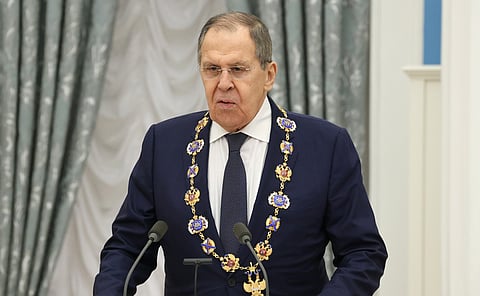

Russian Foreign Minister Sergey Lavrov met with his Chinese counterpart Wang Yi in Beijing on Sunday to reaffirm growing strategic ties between Moscow and Beijing ahead of the Shanghai Cooperation Organization (SCO) Council of Foreign Ministers Summit as well as building on outcomes from the May 2025 summit in Moscow when President Xi Jinping arrived for a 4-day state visit.
The summit, taking place Monday and Tuesday in the Chinese city of Tianjin, is a key preparatory event for the SCO Heads of State Summit scheduled from August 30 to September 1, also in Tianjin.
During their meeting, Lavrov and Wang reiterated the strength of the Russia-China strategic partnership, previously described by both sides as being at its “highest level in history.” They also discussed expanding collaboration within the SCO framework, which both nations see as a platform for counterbalancing Western influence in the region.
Lavrov’s arrival in China follows a three-day visit to North Korea, where he met with North Korean leader Kim Jong Un and Foreign Minister Choe Son Hui. Prior to that, he participated in ASEAN events in Kuala Lumpur and held a bilateral meeting with U.S. Secretary of State Marco Rubio.
The Russian foreign minister is expected to hold additional bilateral meetings with SCO counterparts during his stay. The organization, currently led by China under its rotating presidency, includes Belarus, India, Iran, Kazakhstan, Kyrgyzstan, Pakistan, Tajikistan, and Uzbekistan as full members. Representatives from observer states and dialogue partners are also anticipated to attend the summit.
The meeting comes amid growing geopolitical tensions, as U.S. President Donald Trump weighs supporting legislation that would impose 500% tariffs on countries purchasing Russian energy—potentially targeting many SCO member states.
Trump is also expected to deliver a “major statement” on Ukraine on Monday, with speculation mounting that he may announce renewed military support for Kiev and push for new sanctions, including secondary sanctions, against Russia.